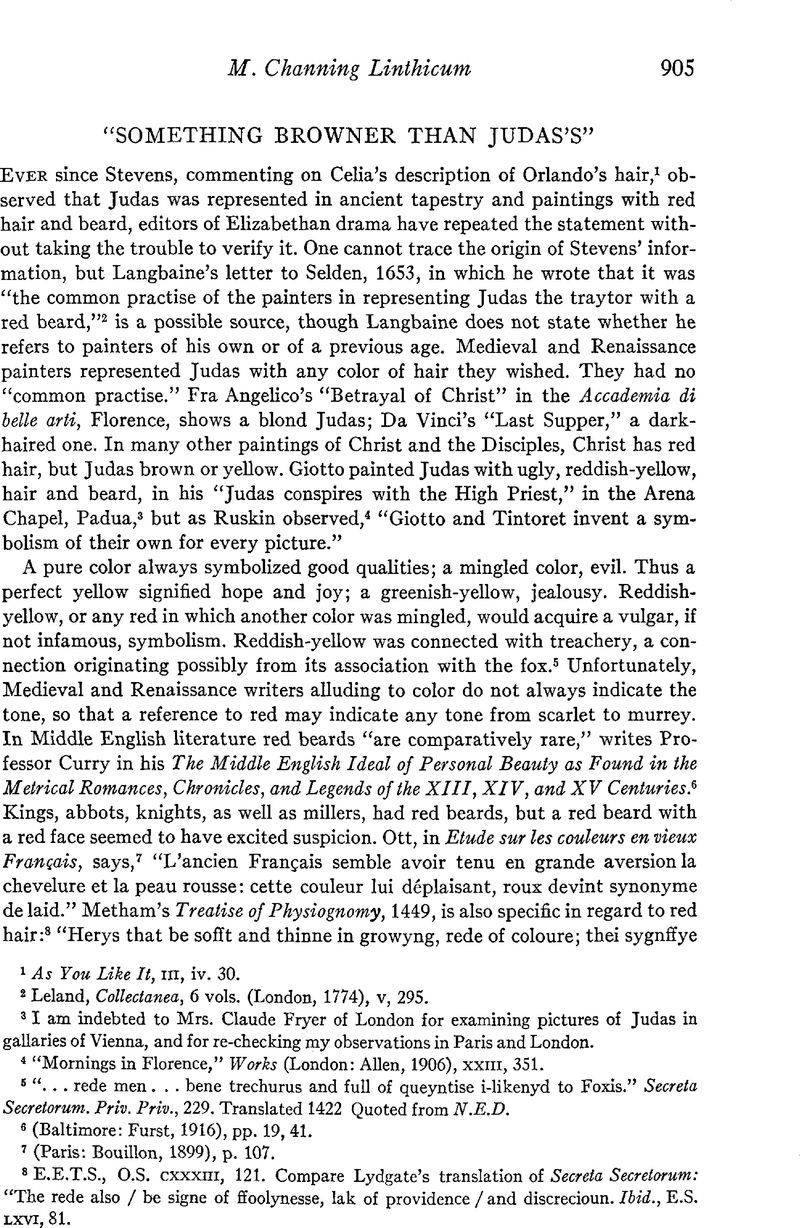No CrossRef data available.
Article contents
“Something Browner Than Judas's”
Published online by Cambridge University Press: 02 December 2020
Abstract

Information
- Type
- Other
- Information
- Copyright
- Copyright © Modern Language Association of America, 1932
References
1 As You Like It, iii, iv. 30.
2 Leland, Collectanea, 6 vols. (London, 1774), v, 295.
3 I am indebted to Mrs. Claude Fryer of London for examining pictures of Judas in gallaries of Vienna, and for re-checking my observations in Paris and London.
4 “Mornings in Florence,” Works (London: Allen, 1906), xxiii, 351.
5 “… rede men … bene trechurus and full of queyntise i-likenyd to Foxis.” Secreta Secretorum. Priv. Priv., 229. Translated 1422 Quoted from N.E.D.
6 (Baltimore: Furst, 1916), pp. 19, 41.
7 (Paris: Bouillon, 1899), p. 107.
8 E.E.T.S., O.S. cxxxiii, 121. Compare Lydgate's translation of Secreta Secretorum: “The rede also / be signe of ffoolynesse, lak of providence / and discrecioun. Ibid., E.S. lxvi, 81.
9 Des habits cérémonies façons de faire anciennes & modernes du monde, p. 178 b.
10 i. i. 200.
11 Les aventures du Baron de Faeneste (Paris, Jannet, 1855), p. 20.
12 A Family of Love, v. i. 80.
13 iii, i.
14 ii, ii.
15 iii, i.
16 “The Spanish Tragedy,” Dodsley Old Plays, v, 121.
17 Chaste Maid in Cheapside, iii, ii. 44.
18 Insatiate countess, ii, Halliwell edition Works, iii, 132.
19 Bonduca, ii, iii. See also Sea Voyage, ii. i.
20 Cornish Ballads and Other Poems (Oxford: Parker, 1869), p. 201. “The Quest of the Sangrael” had been published alone five years previously.

